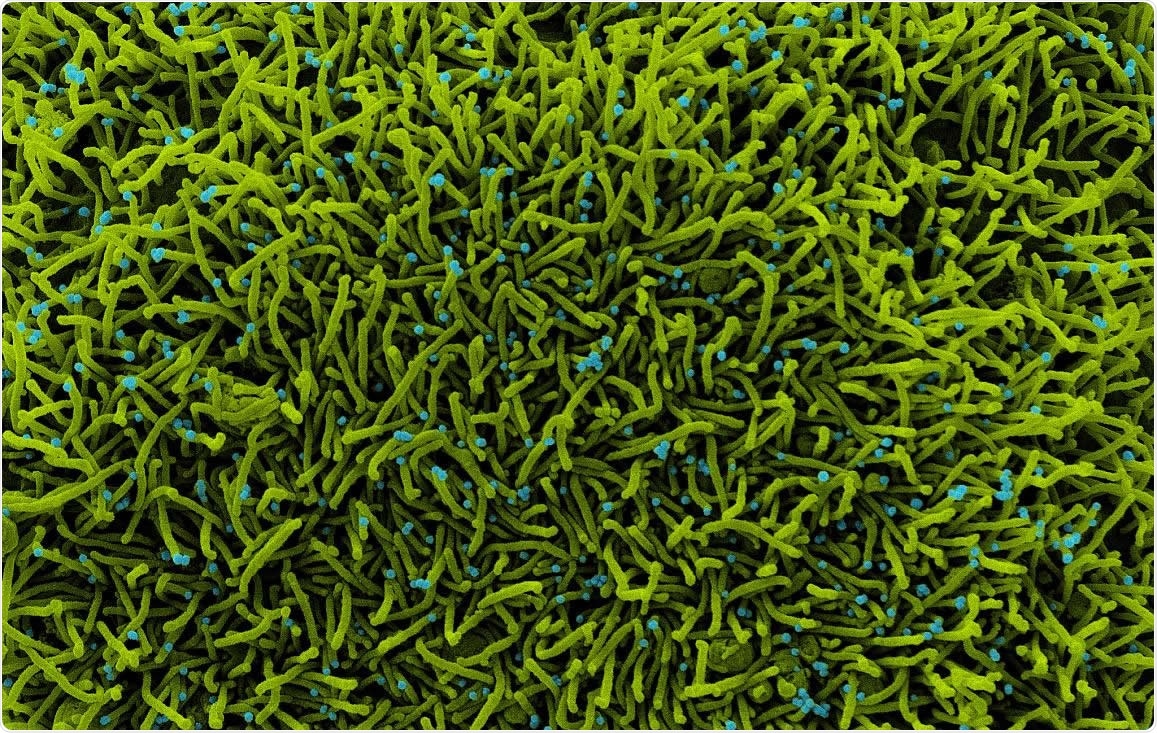As the world grapples with the coronavirus disease (COVID-19) pandemic caused by severe acute respiratory syndrome coronavirus 2 (SARS-CoV-2), the emergence of novel SARS-CoV-2 SARS-CoV-2 viral variants are a growing cause for concern.
With the sudden surge of cases tied to the new variants, health experts have aired their worry about the new variants' implication on the already overwhelmed healthcare system.
Health experts at the National Institute of Allergy and Infectious Diseases (NIAID), part of the National Institutes of Health, outlined how these variants have emerged, concerns about whether approved vaccines can protect against new variants, and the need for a global effort to combat the pandemic.
In an article, published on the JAMA Network and written by health experts, including Dr. Anthony Fauci, American physician-scientist and immunologist serving as the director of the National Institute of Allergy and Infectious Diseases, the authors discuss the need for a pan-coronavirus vaccine, which can protect against most or all variants of SARS-CoV-2.

A CCL-81 cell (green) infected with SARS-CoV-2 virus particles, which are the small spherical structures (teal). The string-like protrusions extending from the cell are cell projections or pseudopodium, whose primary purposes are cell mobility and ingestion of nutrients. Image captured at the NIAID Integrated Research Facility (IRF) in Fort Detrick, Maryland.
Variants of concern
The variants of concern, first reported in the United Kingdom and South Africa, caused surging COVID-19 cases. In the United States, Southern California reported the emergence of a novel SARS-CoV-2 variant, which accounts for 44 percent of samples collected and examined in January 2021.
However, there is confusion in the terminology used for emerging SARS-CoV-2 variants. The authors noted that several new variants' overlapping discovery has led to confusion in naming them.
Media outlets and even scientific communications often use the terms strain, variant, and lineage interchangeably. These involve the basic replication biology of ribonucleic acid (RNA) viruses that lead to the emergence of mutations throughout the viral genome.
A variant emerges when specific mutations are selected through rounds of viral replication. When this produces a virus with distinct and different phenotypic characteristics, the variant is also called a strain. Consequently, when genetic sequencing and analysis lead to the detection of a new variant, the distinct branch on a phylogenetic tree is termed a new lineage.
Since these variants are new, the World Health Organization (WHO) is still creating the appropriate names for these variants. The health agency is currently developing a systematic nomenclature that does not require a geographic reference since these variants are spreading globally.
When these variants are identified, questions arise on whether they are more infectious, easily transmitted, or may cause more severe symptoms. Hence, new variants are studied, leading to various terms such as 'variant under investigation' or 'variant of concern'.
Pan-vaccine against SARS-CoV-2
SARS-CoV-2 is not the only pathogen that has mutated. Other pathogens can mutate into variants, which may need tweaking of vaccines to protect against all the virus strains. For instance, the influenza vaccine can protect against various strains of the virus. This way, an outbreak can be prevented.
Since variants can different mutations, scientists worry that developed vaccines may be less effective against a particular variant. In the report, the authors noted that the South African variant or the B.1.351 might be partially or fully resistant to specific SARS-CoV-2 monoclonal antibodies currently authorized for use as therapeutics in the United States.
These new variants may also pose a challenge for vaccine makers. The already approved vaccines against SARS-CoV-2 may not work against the other variants.
The researchers recommended the development of a pan-coronavirus vaccine that can protect against most or all variants. Though similar programs are in place for other diseases, such as influenza, the changing nature of SARS-CoV-2 may warrant this type of vaccine.
To date, more than 109 million infections have been recorded globally. Of these infections, over 2.41 million people died. At the same time, some 61.5 million have recovered. The United States remains the nation with the highest case toll, reaching 27.75 million cases.
The countries with the skyrocketing number of cases include India, with 10.92 million cases; Brazil, with 9.92 million cases; the U.K., with 4 million cases; Russia, with 4 million cases; and France, with 3.54 million cases.
Sources:
Journal reference: